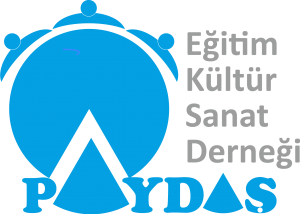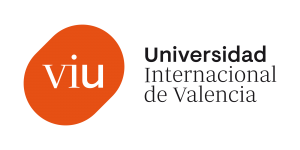Project
The project
In today’s digital generation, gamification has become a popular tactic to encourage specific behaviours, and to increase students’ motivation and engagement to get the knowledge and skills. Though commonly found in marketing strategies in business among companies, it is now being implemented in many educational programs as well, helping educators to find the balance between achieving their objectives and students’ educational needs.
According to Kapp gamification is “using game-based mechanics, aesthetics and game thinking to engage people, motivate action, promote learning, and solve problems.” (Kapp, 2012). It has been proven by the research that gamification has increased enjoyment, engagement, motivation, participation and learning (Cheong, Cheong, & Flippou, 2013; Su & Cheng, 2015; Tsay, Luo, 2018; Subhash & Cudney, 2018). At the same time gamification is an international tool which can be used in different educational systems, adapted according to the teachers’ individual needs and widely spread to the teachers’ practice. There are different ways of teaching and different ways of using gamification in every country, so that is why it is very useful to create a partnership on an international level and to share the best practice and ideas connected with implementation of gamification in the learning environment.
Our goal
GATE aims to support teachers in all subjects (from elementary to higher education) with a set of innovative gamification tools and practices to improve the effectiveness of their teaching by increasing the motivation of students to learn and to develop their attitudes towards the learning process by providing them. In order to achieve this goal, the partners have developed a web based gamification tool and an open online course on gamification.

Web-Based Gamification Tool
The project aims to create a useful and effective web-based tool that provides teachers to gamify their classes easily.
The tool is a Learning Management System (LMS) which makes it possible for teachers to prepare an online learning platform to support their lessons. Teachers may use it to upload their educational materials, to organize weeks of the course, to give homework to the students, to make announcements, even to give quizzes. With this gamification tool, teachers can create tasks, rules, levels, points, badges, leaderboards, virtual rewards, teams and more.

Open Online Course on Gamification
The partners developed an Open Online Course (OOC) to provide teachers with a broad knowledge of gamification methods, processes, elements, and tools in order to facilitate gamification in educational settings. The OOC is innovative by its “live and learn” approach and using various game elements within the course to provide teachers a gamified learning process.
The course consists of three modules. The first module is an introduction to Educational Gamification, the second module is about the design of gamification for learning situations and the third module involves tools for gamification and the theory of gamified assessment (feedback).
Meet the partners
The partnership is set up between four different organisations from Belgium, Turkey and Spain in a cross sectoral way.

Belgium
UCLL
Vzw UC Limburg is a Higher Education Institution in Flanders, collaborating under the name UC Leuven-Limburg with 2 other HEIs: vzw UC Leuven (formerly KHLeuven) and vzw UC Leuven Comenius Lerarenopleidingen (formerly Group T).
UC Limburg is renowned for the high quality of its teaching, research & regional development. More than 30 professional bachelor, and lifelong learning study programmes are offered in various disciplines fields, with a focus on health care, social work, business & commerce, teacher education, science & technology. UCLL’s strong commitment to research ensures state-of-art training programmes for its 15 000 students. Priority domains of the institution are: regional development, blended learning (including development of MOOCs and Open Data Platform), lifelong learning strategies, internationalisation & research. The research policy is focused on marketdriven applied research. Central to the UC Limburg’s mission in the field of research is to develop innovative technology for companies, and to transfer new technology to the market.
UC Limburg also provides consultancy and continuing education for local industries, organisations and governments. UC Limburg is member of educational networks across the globe and strongly collaborates with local, regional and national policy-making bodies, resulting in a broad network of stakeholders.
turkey
Hacettepe Universitesi
Hacettepe University wants to become a leading university where the individuals are proud to be a member of both in the national and international arena, leading the change and development.
As if today, Hacettepe University continues its activities with 16 Faculties, 15 Graduate Schools and Institutes, 2 Applied Schools, 1 Conservatory, 4 Vocational Schools, 94 Research and Application Centers, 3 Libraries. As one of the leading universities in the country, Hacettepe University keeps contributing to social development and universal values in the fields of science, technology and art, within 132 Departments, 132 Undergraduate Programmes, 191 Master Programmes (plus 52 multidisciplinary), and 132 PhD Programmes (plus 23 multidisciplinary and 40 associate PhD programmes).
Hacettepe University was designated as one of the ten “Research Universities” in Turkey in 2017. As a research-oriented university committed to research as a central part of its mission, Hacettepe University is committed to enhancing the student experience of research-based teaching in undergraduate and graduate programmes. Empowered with the multidisciplinary research at Hacettepe University contributes to industry and society with technology and public services it pursues.


turkey
Paydaş
Paydaş is a non-profit educational institution founded by reunion of educators. The members are mainly the teaching staff at different types of organisations in the field education. In this respect the association’s regular activities include organizing training which support the development of supportive educational activities for teachers, educators, schools and various public administrators, VET actors and adult learners/educators. The activities cover the three main areas: education for personal and professional development, innovation and digitalization. Running organizations to nurture reciprocal education between teaching staff and educational interaction is also one of the aims of the association. One of our main missions is to promote entrepreneurship and personal development. Our organization also focuses on developing some innovative training programmes, modules and tools to support the educational resources. Thus, it will have far reaching impacts on the young population of Turkey and all Europe.
PAYDAS has a large network on local and regional level which can involve in project activities related to the scope of the project. Striving to always enrich and improve the education that is provided by our organization, we have adopted and developed different training approaches. Therefore, previous experiences give the organisation a unique insight of the practical aspects of implementing large scale co-funded projects and also provided us an extremely wide network of collaborating organizations from all over the world.
PAYDAS has a huge network that allows the organisation to be in contact with other NGOs, schools, foreign partners, stakeholders, consulting companies, educational institutions and universities, experts, public administration, etc.
spain
Universitat Internacional Valenciana
The International University of Valencia is a higher education entity in the process of growth and consolidation in the On-line Education sector.
In the last two years, the number of students and professors has increased considerably. The International University of Valencia currently serves more than 12,800 students of 72 different nationalities and has increased its workforce in more than 900 instructors. The International University of Valencia provides both undergraduate and postgraduate studies in areas such as arts and humanities, communication studies, health education, law, astronomy, and education studies.
The International University of Valencia promotes the academic mobility of its students, as well as its staff. To do this, through the Erasmus + program, it offers students and staff different support services, scholarships and grants so that they can carry out part of their learning, practice or professional activity in another university, company or institution during the period in which they are studying or working at the International University of Valencia. The Erasmus + program, which is part of the European Union’s “Europe 2020, Education and Training 2020” and “Rethinking Education” strategies, helps VIU to promote the international mobility of students and teaching staff, taking advantage of the opportunities offered by intercultural training and experience.

